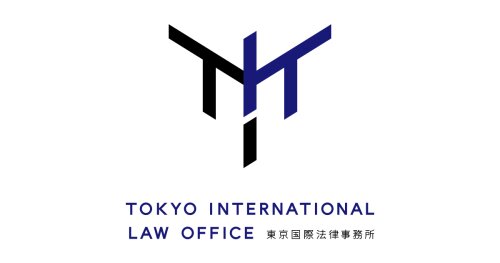Best Appeal Lawyers in Tokyo
Share your needs with us, get contacted by law firms.
Free. Takes 2 min.
List of the best lawyers in Tokyo, Japan
About Appeal Law in Tokyo, Japan
Appeal law in Tokyo, Japan, allows for a review of judicial decisions by a higher court. The Japanese legal system is made up of district courts, high courts, and the Supreme Court, each playing a role in the appellate process. Typically, appeals in Tokyo are filed with the Tokyo High Court if they originate from decisions made by district courts within the region. Ultimately, some cases may reach the Supreme Court of Japan, where the final appeals are heard. An appeal must be based on either a legal error or an error in fact-finding by the lower courts. The appeal process is governed by the Code of Civil Procedure for civil matters and the Code of Criminal Procedure for criminal matters.
Why You May Need a Lawyer
Individuals often seek legal help in the field of appeal for various reasons. You may believe that the court's decision in your case was based on a misunderstanding or an incorrect application of the law. In criminal cases, an appeal might be sought after a conviction or sentencing perceived as unjust. For civil cases, one might pursue an appeal if they feel the court ruling unfavorably affects their rights or interests. Due to the procedural complexities and strict deadlines associated with filing an appeal, a lawyer's expertise is typically necessary to navigate this process effectively.
Local Laws Overview
In Tokyo, as elsewhere in Japan, the appellate process follows strict procedural rules. Appeals must be filed within a specific period, generally within two weeks of the initial judgment for civil cases and fourteen days for criminal cases. Moreover, only issues that were raised during the initial trial can usually be argued on appeal. Appellate courts do not conduct new trials but review the record of the lower court proceedings to determine if there were any procedural mistakes or legal errors significant enough to overturn the decision. Additionally, Japan's legal system does not use jury trials, so appeals are decided by judges.
Frequently Asked Questions
What is the time limit for filing an appeal in Tokyo?
The time limit for filing an appeal is generally two weeks for civil cases and fourteen days for criminal cases from the day the initial judgment was rendered. It is crucial to comply with these timelines, or the chance to appeal may be forfeited.
Can I appeal a judgment if I simply disagree with it?
An appeal is not a matter of simply disagreeing with a decision. Grounds for appeal include legal errors, misapplication of law, procedural issues, or a clear mistake in assessing evidence. A lawyer can help determine if your case has a basis for appeal.
Do I need a new lawyer for an appeal if I had one for the trial?
Not necessarily, but it may be beneficial to work with a lawyer who specializes in appellate cases, as they have specific expertise in arguing appeals and understanding appellate law.
Will I have to appear in court during the appeal?
Not usually. Appeals are generally decided upon the written record and briefs submitted by the parties' lawyers. Oral arguments may sometimes occur, but personal appearances by the parties are rare.
Can new evidence be introduced during the appeal?
New evidence is typically not admissible in an appeal. The appellate courts only assess the evidence and arguments presented during the original trial.
Is there a possibility to appeal to the Supreme Court of Japan?
Yes, it is possible, but only for legal questions of great significance. The Supreme Court is the final level of appeal in Japan's legal system. However, acceptance of cases by the Supreme Court is selective and relatively rare.
How long does the appeal process usually take?
The duration of the appeal process can vary widely and may take several months to more than a year, depending on the complexity of the case and the court's schedule.
What happens if I win an appeal?
If you win an appeal, the appellate court may reverse the lower court's decision, leading to a new trial, a changed sentence, or, in civil cases, an altered judgment. The specific outcome depends on the nature of the appellate court's ruling.
Are there any alternatives to a formal appeal?
Alternatives such as settlement negotiations, mediation, or other dispute resolution methods may be available and appropriate in some civil cases.
What is the cost of filing an appeal?
The cost of filing an appeal includes court fees and attorney fees. The total expense can vary significantly based on the case's complexity and the length of appellate proceedings.
Additional Resources
Individuals seeking legal advice regarding appeals may consult the Japan Federation of Bar Associations, the Tokyo Bar Association, and the Supreme Court of Japan. These entities may provide information about the appeals process, refer to qualified attorneys, and offer legal resources.
Next Steps
If you need legal assistance in an appeal, consider taking these steps:
- Review your judgment to ensure that the time limit for filing an appeal has not passed.
- Consult with a lawyer who specializes in appellate work to determine if there are valid grounds for an appeal.
- Gather all relevant documents, including the initial trial's records and any pertinent evidence.
- Discuss the potential costs, timeline, and outcomes with the lawyer to set realistic expectations.
- Follow the advice of your lawyer in preparing and filing your appeal, and provide any assistance requested to facilitate the process.
Lawzana helps you find the best lawyers and law firms in Tokyo through a curated and pre-screened list of qualified legal professionals. Our platform offers rankings and detailed profiles of attorneys and law firms, allowing you to compare based on practice areas, including Appeal, experience, and client feedback.
Each profile includes a description of the firm's areas of practice, client reviews, team members and partners, year of establishment, spoken languages, office locations, contact information, social media presence, and any published articles or resources. Most firms on our platform speak English and are experienced in both local and international legal matters.
Get a quote from top-rated law firms in Tokyo, Japan — quickly, securely, and without unnecessary hassle.
Disclaimer:
The information provided on this page is for general informational purposes only and does not constitute legal advice. While we strive to ensure the accuracy and relevance of the content, legal information may change over time, and interpretations of the law can vary. You should always consult with a qualified legal professional for advice specific to your situation.
We disclaim all liability for actions taken or not taken based on the content of this page. If you believe any information is incorrect or outdated, please contact us, and we will review and update it where appropriate.














